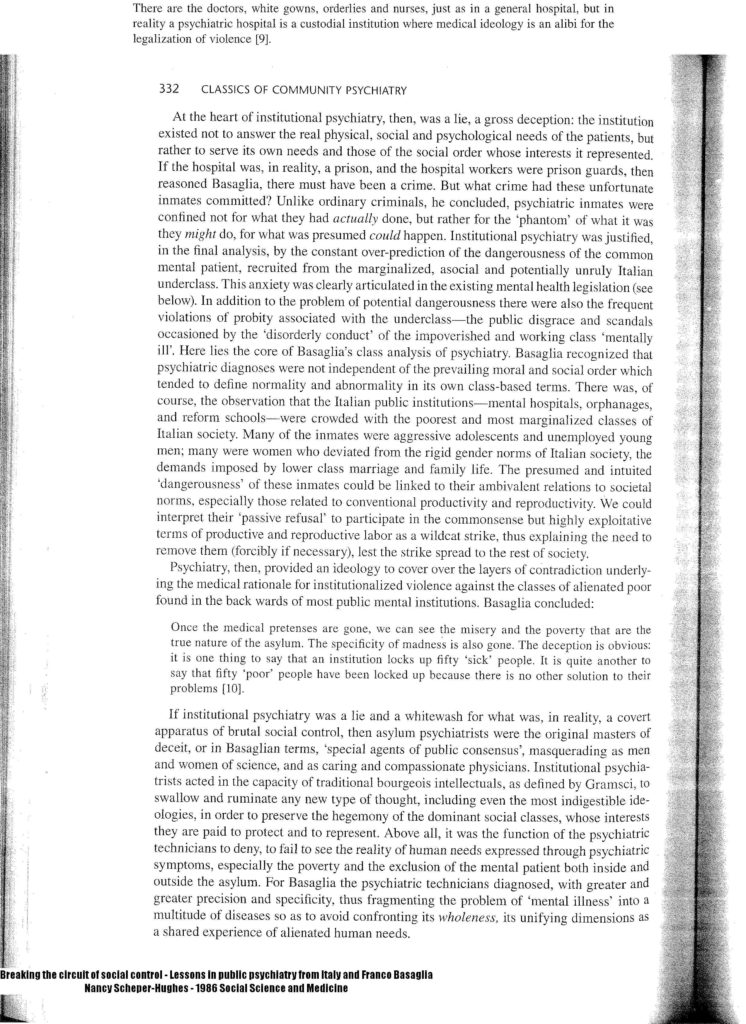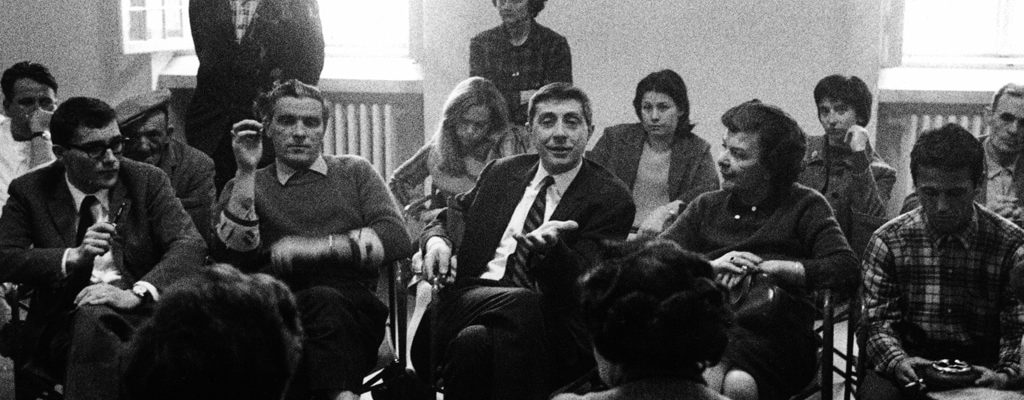
In my previous article I said I had discovered the best article so far on Basaglia. However its only really an introduction and not really that actual radical (in all senses of that word) “dope” on Basaglia. The discovery of the following article was hard won indeed. This is truly suppressed information in this field, especially in Britain (“Many Bothan spies died to bring you this information” if you’re a Star Wars fan). I should add that I don’t understand the political side of this in Marxist terms. For me Marx’s Capitalist overlords who are supposedly always suppressing the working class is not such an overarching thing. I see that as the “Deep State”. Corrupt and criminal actors and politicians that take advantage of their roles to make money. They tend to be morally corrupt. However this does not mean all politicians and billionaires are suppressing their workers or are evil. However I don’t think it really matters. If your’re of the Left, the Right or even an outright Marxist the key here is non-violence. Some may baulk at Basaglia’s politics but at its core is peace. As non-violent as Martin Luther King was or Ghandi. But reading this document I was struck most of all by its quality. This is truly gold. Use it to free those imprisoned by psychiatry and “mental health” in Britain. To buy their freedom.
4,446 views
[…] This may give a general outline of the subject but, as I found, the article I subsequently wrote about is actually much, much better. […]